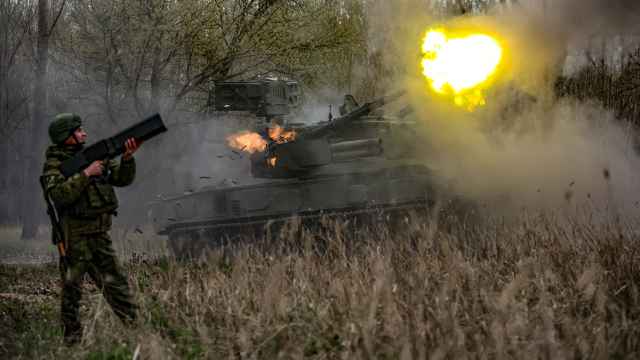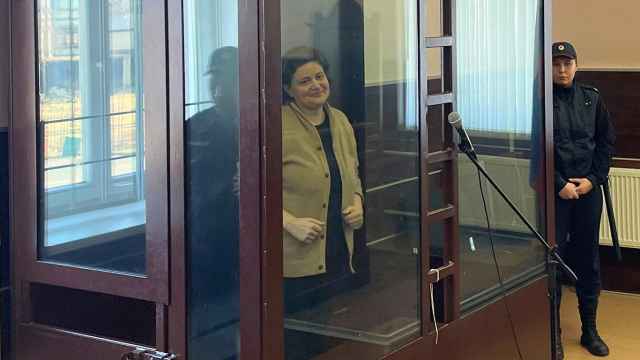The Investigative Committee of the Prosecutor General's Office said Friday that it is opening a corruption case related to purchases of Mercedes-Benz automobiles by state agencies.
"Due to results of a preliminary audit … a criminal case has been initiated … into fraud committed through deception and breach of confidence in concluding contracts for the delivery of Mercedes-Benz automobiles to state bodies," according to a statement on the agency's web site.
In April, Daimler subsidiary Mercedes-Benz Russia was fined $27.26 million by the U.S. Justice Department for conspiring to violate and violating the U.S. Foreign Corrupt Practices Act, as part of a deferred prosecution agreement.
According to a report in RBC Daily, the Investigative Committee began its audit in July and should have completed it within one month.
National Anti-Corruption Committee chairman Kirill Kabanov credited President Dmitry Medvedev's strong, "unignorable" stand against corruption and continued press attention for the recent movement in the case.
"It's thanks to the president," he told The Moscow Times.
Media and watchdogs like Transparency International criticized the delay in investigating the case, in light of the fact that the company had already pleaded guilty in the United States.
"There are the facts. Get to work," said Yelena Panfilova, head of Transparency's Russia office, in an interview with Interfax. The organization ranks Russia 154th out of 178 countries for corruption.
The Foreign Corrupt Practices Act applies to all companies with securities listed in the United States. Companies are extremely hesitant to dispute charges brought under the act, fearing the consequences of losing a court case.
The fines imposed on Mercedes-Benz Russia were part of a larger case that cost the company a total of $128 million in fines. Investigation of that case began after a Daimler auditor made it public in 2004 that the company maintained secret bank accounts.
Mercedes-Benz Russia admitted to making "improper payments to Russian federal and municipal government officials to secure contracts" in exchange for kickbacks, according to a Justice Department statement. Between 2000 and 2005, officials received 5 million euros and 80,000 German marks, which amounted to 7.8 percent of Daimler's Russian government contracts in that period, RBC Daily reported.
Among the agencies that purchased Daimler vehicles in that period were the Interior Ministry, the Defense Ministry, the Federal Guard Service and the city administrations of Moscow, Ufa and Novy Urengoi.
"Fighting corrupt people is not the same as fighting corruption" of the system, Kabanov said. He pointed out that Russia lacks accountability, transparency and social control in its government. Without those, no amount of law enforcement can overcome the "multibillion-dollar corruption market," he said.
Anton Pominov of Transparency International's Russian office said this investigation might have a significant effect.
"The process [of the investigation] may have more serious consequences than the investigation of individual corruption crimes" in this case, he said. "If highly placed officials are held accountable, we can consider it confirmation of the seriousness of the government's intentions to fight the system of corruption."
Investigative Committee chairman Alexander Bastrykin suggested in an interview with Rossiiskaya Gazeta on Wednesday that members of the Federation Council be deprived of their immunity. That comment brought a fast response from the Council, which announced that it was drafting a set of laws to strengthen its members' immunity.
The State Duma voted on Nov. 3 to deprive member Ashot Yegiazaryan of his immunity in connection with fraud charges. The Investigative Committee initiated a case against him on Nov. 5. Yegiazaryan has denied his guilt. He is reported to be living in Great Britain.
Russian officials were also implicated in the corruption case brought in the United States against Swiss company Panalpina. The Investigative Committee did not respond to a written enquiry Friday about the possibility of prosecuting the officials involved in that case.
A Message from The Moscow Times:
Dear readers,
We are facing unprecedented challenges. Russia's Prosecutor General's Office has designated The Moscow Times as an "undesirable" organization, criminalizing our work and putting our staff at risk of prosecution. This follows our earlier unjust labeling as a "foreign agent."
These actions are direct attempts to silence independent journalism in Russia. The authorities claim our work "discredits the decisions of the Russian leadership." We see things differently: we strive to provide accurate, unbiased reporting on Russia.
We, the journalists of The Moscow Times, refuse to be silenced. But to continue our work, we need your help.
Your support, no matter how small, makes a world of difference. If you can, please support us monthly starting from just $2. It's quick to set up, and every contribution makes a significant impact.
By supporting The Moscow Times, you're defending open, independent journalism in the face of repression. Thank you for standing with us.
Remind me later.





